Event Horizon
Governance used to be based on fixed laws—written in constitutions, treaties, and democratic systems. But strict legal codes are being replaced by flexible ethical rules. What was once just advice is now becoming law.
AI is taking over—not just following rules, but creating and enforcing them. Through adaptive management, it monitors, judges, and continuously reshapes governance in real time, while the appeals process gradually fades away.
And once this system is in place, reversing it becomes nearly impossible.
The Great Chain of Being and Its Systemic Evolution
The Great Chain of Being, originating from Neoplatonic thought, envisions existence as a structured hierarchy, stretching from pure spirit—often referred to as The One—at the highest level, down to inanimate matter at the lowest. This framework provided a way to understand reality, where each level represented a diminishing intensity of divine unity. Everything in existence had its proper place, with higher levels holding greater spiritual significance and power, while lower levels became increasingly material and disconnected from the divine.
This hierarchical worldview had a profound influence on medieval philosophy, theology, and political structures. It reinforced the idea that human society should mirror the cosmic order. Kings and rulers were believed to govern by divine right, acting as earthly representatives of a higher spiritual authority. The very structure of governance was shaped by this principle, ensuring that power flowed from the top down, just as spiritual energy was believed to descend from the divine. By aligning earthly rule with cosmic order, this model provided a moral justification for centralised power and rigid social stratification.
As scientific thought advanced, particularly with the development of systems theory, this metaphysical hierarchy was gradually reinterpreted through an empirical lens. The notion of a fixed divine order gave way to the idea of self-organising systems, where stability arose from interrelated components responding to their environment. Governance, once seen as a sacred duty, became increasingly viewed as a form of scientific management, where decisions were guided not by spiritual imperatives but by rational planning and systemic oversight.
The work of Alexander Bogdanov, particularly through his theories of Tektology, Empiriomonism, and Proletkult, played a critical role in removing spirituality from human organisation. These frameworks replaced the transcendent principles of the Great Chain with adaptive, cybernetic control mechanisms. Instead of viewing society as an expression of divine will, these theories reimagined governance as a dynamic process, where feedback loops, efficiency, and systemic adaptation took precedence over moral or religious considerations.
As this shift continued, the justification for governance evolved. It was no longer seen as an extension of divine authority but as a technocratic endeavour, managed through algorithmic decision-making, data-driven analysis, and cybernetic models of control. This transition laid the groundwork for AI-driven governance, where ethics are no longer rooted in fixed moral philosophy but instead enforced dynamically, shaped by real-time analytics and automated systems of oversight.
Thus, what began as a metaphysical framework for understanding the universe has, over time, transformed into a mechanistic model of governance, where decisions are no longer justified by appeals to the divine but by scientific rationality and technological efficiency. In this sense, the Great Chain of Being has not disappeared but has been fundamentally restructured—its spiritual hierarchy replaced by an ever-adapting network of control, guided not by theology, but by data.
Tektology, Empiriomonism, and Proletkult as Systemic Replacements for the Great Chain
The shift from the Great Chain of Being to a materialist, systemic model profoundly changed how governance and knowledge are structured. In the Neoplatonic worldview, reality was arranged in a strict hierarchy, with The One at the highest level as the ultimate source of unity and order. Below this, existence gradually became less divine—first through intellect, then soul, then nature, and finally, at the lowest level, pure matter.
However, as scientific materialism and cybernetics developed, this spiritual hierarchy was gradually replaced by mechanistic, systems-based models. Alexander Bogdanov played a key role in this transition. His theories completely removed the spiritual dimension from human organisation, replacing divine causality with adaptive, functional efficiency.
Bogdanov’s three main concepts—Tektology, Empiriomonism, and Proletkult—acted as direct replacements for the traditional ontological, epistemological, and normative aspects of the Great Chain. In other words, his frameworks provided a new way to structure reality, explain knowledge, and establish moral imperatives, all without relying on spirituality.
The Goal of Tektology: A Universal Science of Organisation
Bogdanov’s Tektology aimed to create a universal science that explained how all forms of organisation—biological, social, and technological—operate under a single set of rules. In contrast to the Great Chain, which assumed a divine force directing reality, Tektology removed spirituality altogether and instead focused on systemic adaptability, feedback loops, and materialist efficiency.
Tektology laid the foundation for modern systems theory and cybernetics, introducing the idea that all structures—from cells to societies—follow the same operational principles. This was revolutionary because it meant that governance could be predicted, self-regulated, and continuously optimised through data and systemic adjustments.
By rejecting metaphysical concepts, Tektology replaced moral and ethical considerations with pure efficiency. In this view, survival and progress depend on systemic adaptability, not on adherence to moral philosophy or divine order.
Empiriomonism: Replacing Absolute Truth with Adaptive Knowledge
Bogdanov’s Empiriomonism went even further, questioning whether absolute truth even existed. In traditional philosophical thought, knowledge was often seen as fixed and eternal, reflecting deeper metaphysical realities. However, Empiriomonism denied this, arguing that knowledge is not universal but is shaped by collective experience and adaptation.
This shift was significant because it meant that truth was no longer about discovering objective reality but about what works within a system. A fact or idea was only considered "true" if it served a functional purpose in maintaining stability and efficiency.
This approach closely resembles modern AI-driven governance, where truth is no longer static but instead constantly updated based on real-time data. In such a system, governance is no longer based on traditional legal frameworks. Instead, it is driven by algorithms that adjust policies to fit current conditions, making human rights, ethical considerations, and philosophical ideals secondary to the demands of the system.
By stripping knowledge of any spiritual or metaphysical foundation, Empiriomonism turned governance into a purely materialist process—one where decision-making is based on immediate system needs rather than fixed moral or legal principles.
Proletkult: Reintroducing Meaning Through Political Ideology
While Tektology and Empiriomonism removed spirituality from governance and knowledge, Proletkult served a different function. It recognised that humans still need meaning and purpose—a role traditionally fulfilled by religion. To fill this gap, Proletkult reintroduced a sense of mission, not through spirituality, but through revolutionary ideology.
Proletkult functioned as a replacement for religious belief, offering a utopian vision that framed political struggle as a higher purpose. Rituals, art, and cultural expression—once used to reinforce religious values—were repurposed to build revolutionary consciousness.
This approach strongly mirrors modern global ethics narratives, where causes like sustainability, social justice, and planetary governance take on a quasi-religious function. These concepts provide a collective purpose in the same way that religious dogma once did, shaping behaviour and justifying moral imperatives for governance.
In this way, Proletkult provided a template for modern AI-driven governance, showing how systems of control can maintain legitimacy by continuously adjusting ethical imperatives to serve systemic stability.
The spiritual hierarchy of the Great Chain of Being was not simply abandoned; it was transformed into a mechanistic, cybernetic model of governance. Where once divine will shaped human affairs, now it is systemic efficiency that dictates them.
Bogdanov’s theories played a central role in this transformation.
Tektology replaced spiritual causality with a universal science of organisation.
Empiriomonism replaced absolute truth with adaptive, system-driven knowledge.
Proletkult reintroduced meaning through ideological mobilisation.
These ideas laid the foundation for modern AI-driven governance, where ethics are no longer fixed moral guidelines but continuously shifting mandates enforced through data-driven systems. As governance becomes increasingly automated, these concepts form the backbone of a world where control is no longer justified by divine order, but by systemic necessity.
Jantsch (1970): The Interdisciplinary University as Great Chain Systems Theory
In his 1970 paper on the inter- and transdisciplinary university, Erich Jantsch reimagined the Great Chain of Being as a hierarchical knowledge structure within systems theory. Instead of a divine order governing existence, he envisioned systemic organisation as the structuring principle of knowledge and decision-making.
Jantsch’s model removed pure metaphysics (The One) and replaced it with a collectively defined 'common good,' such as planetary health or social justice. This shift fundamentally transformed governance and human organisation by rooting decision-making not in unchanging spiritual principles, but in evolving ethical imperatives shaped by global institutions. The common good became the justification for policy enforcement, ensuring that governance was framed not as a political choice but as a moral necessity.
This transformation centralised power, as the ability to define and adjust ethical imperatives was placed in the hands of global institutions and AI-driven compliance systems. As a result, individual and national sovereignty became subordinate to universal ethical imperatives, reinforcing a planetary-scale system of governance that functioned independently of traditional political mechanisms.
The Shift to AI-Driven Administrative Control
Jantsch’s framework restructured governance around scientific-administrative management, where decision-making was increasingly shifted from elected officials to algorithmic governance models. Political processes, once rooted in debate and deliberation, were minimised in favour of AI-driven optimisation.
Policy implementation became data-driven, with decisions made based on real-time system inputs rather than human judgement. This shift established a managerial model where systemic efficiency took precedence over individual autonomy.
Traditional bureaucracy was reduced, replaced by automated regulatory enforcement.
Governance became predictive and self-regulating, using big data analytics to adjust policies dynamically.
Human oversight was no longer necessary, as decision-making was handled by cybernetic control systems.
This transformation fundamentally changed the role of governance, making it an automated, self-correcting system, rather than a human-directed political process.
The Cybernetic Absorption of the Lower Levels of the Great Chain
In the Great Chain of Being, lower levels represented material existence, which was seen as less divine but still ordered by the hierarchy above. In Jantsch’s framework, these lower levels did not disappear but were instead absorbed into cybernetic feedback systems.
Through real-time global surveillance, algorithmic adjustments, and ‘Digital Twin’ predictive analytics, AI-driven systems continuously monitored, regulated, and adjusted societal functions. These digital infrastructures allowed governance to be:
Responsive – reacting instantly to changing conditions.
Self-correcting – continuously refining itself through feedback loops.
Largely automated – requiring minimal human intervention.
This structure ensured that governance was permanently optimised, meaning human agency was no longer necessary or even desirable in policy enforcement. As AI systems regulated all aspects of material reality, governance became a self-perpetuating, digital infrastructure rather than a political institution.
Jantsch’s Legacy: The Blueprint for AI-Driven Ethics-Based Governance
Jantsch’s work laid the groundwork for modern adaptive AI governance, where knowledge is structured for planetary-scale decision-making. His model foreshadowed the transition from traditional governance to a system where ethics-based AI controls human society. This approach directly aligns with contemporary global governance efforts, where:
Global institutions dictate ethical imperatives based on data-driven analysis.
AI continuously enforces compliance, adapting governance in real time.
The role of human agency is reduced, as governance is framed as a scientific necessity rather than a political process.
Jantsch’s vision was not just a theory of knowledge—it was a blueprint for a world where decision-making is fully automated, where governance is no longer an expression of collective will but an optimised function of a self-regulating system.
The Shift from Law to Ethics: A Systemic Transformation
The move from fixed legal frameworks to adaptive ethical mandates marks a fundamental change in governance. Historically, laws were designed to provide clear, enforceable rules based on established legal traditions. However, as governance becomes increasingly AI-driven, law is being replaced by fluid ethical imperatives that evolve dynamically to meet global priorities such as planetary health, sustainability, and social justice.
This shift is based on the idea that governance must remain responsive to systemic conditions, rather than being constrained by rigid legal precedents. Instead of relying on static laws, AI-driven governance adjusts policy enforcement in real time, ensuring compliance with evolving ethical objectives.
The Decline of Fixed Legal Frameworks
Legal systems, traditionally based on constitutions, treaties, and judicial rulings, are now being replaced by ethics-based governance models that allow for continuous adaptation. Unlike conventional laws, which require deliberative political processes, ethical mandates are increasingly determined by transnational institutions, corporate governance frameworks, and AI-driven analysis.
From Static Law to Dynamic Ethics
Traditional law is reactive, requiring legislative debate and approval. Ethics-based governance, however, is proactive, using real-time AI assessments to predict, prevent, and adjust policy enforcement dynamically.Superseding National Sovereignty
As global ethical mandates become legally binding, the role of nation-states is reduced to enforcing international directives rather than creating their own policies. National legal systems are absorbed into global ethics frameworks, effectively eliminating national autonomy.Ethics as a Tool for Legal Transformation
Ethical governance is framed as a moral necessity, allowing legal changes to bypass democratic processes in favour of AI-driven, technocratic decision-making. Traditional laws, which rely on precedent and judicial interpretation, function slowly. Ethics-based governance, however, is fluid, allowing for continuous adaptation without legislative barriers. Once embedded in law, ethical directives become dynamic, meaning governance mechanisms can adjust policies instantly based on AI analysis.
AI as the Mechanism for Ethical Enforcement
With AI-driven decision-making, governance shifts from human-administered legal systems to automated ethical enforcement. Ethics is no longer a guiding principle but an enforceable compliance system, monitored and administered by autonomous, cybernetic control structures.
AI-Driven Surveillance and Compliance Monitoring
AI continuously evaluates compliance with ethical directives through real-time surveillance, behavioural tracking, and automated data analytics. Social behaviour, financial transactions, and online activities are monitored for adherence to global ethical standards.Preemptive Regulation and Automated Enforcement
Rather than punishing violations after they occur, AI-driven governance anticipates and prevents infractions in advance.Non-compliant individuals or organisations may face restricted financial access, travel limitations, or digital penalties.
Compliance incentives are built into social and economic systems, encouraging participation in ethical governance through reward mechanisms.
Self-Regulating Ethical Systems
AI governance operates autonomously, removing the need for human oversight. Ethical enforcement mechanisms self-correct, ensuring that governance remains fluid, continuously optimised, and perfectly aligned with systemic objectives.
This transition marks the final step towards fully automated governance, where AI no longer merely advises policymakers but becomes the de facto governing authority, regulating compliance with global ethics at both individual and systemic levels.
Monitoring: AI evaluates compliance through digital surveillance, behavioural tracking, and predictive analytics.
Preemptive Regulation: Instead of responding to violations, AI preemptively adjusts behaviour by restricting access to resources, imposing financial penalties, or limiting freedoms.
Self-Regulation: The system operates independently, ensuring enforcement remains constant and non-negotiable.
The Historical Track Record of Ethics-Based Governance
Historically, merging ethics with law has often led to oppression, mass purges, and totalitarian control. While ethics-based governance is framed as a path to justice and equity, history shows that when ethics become legally binding, dissent is criminalised, opposition is declared immoral, and large-scale repression often follows.
Nazi Germany and the Ethical Justification for Totalitarianism
The Nazi regime under Hitler merged racial and nationalist ethics with state law, justifying authoritarian governance as a moral necessity for a "purified" society.
Ethical Directives Became Law
Anti-Semitic policies, racial purity laws, and nationalist doctrine were framed as essential for the moral well-being of Germany.Dissent Was Criminalised as Immoral
Opponents of the regime were branded as traitors and enemies of the ethical order.State-Controlled Ethics Justified Mass Atrocities
Genocidal programmes were carried out under the justification of ethical necessity for the survival of the German state.
Fascist Italy and the Suppression of Opposition
Under Mussolini, state-driven morality and corporatism became the foundation of governance. Ethics were codified into law to ensure national unity and obedience.
Loyalty to the State Was an Ethical Duty
Individual freedoms were erased in favour of collective nationalism.Ethical Directives Controlled Culture and Society
Censorship, ideological control, and political purges were framed as ethical necessities.Legal Frameworks Reinforced Ethical Governance
Courts ruled in favour of the state’s moral imperatives, eliminating any legal recourse for dissenters.
Stalin’s Soviet Union and Ethics-Based Class Warfare
Stalin’s Soviet Union demonstrates how ethics-based governance can justify mass oppression.
Ethics as a Justification for Political Purges
The Stalinist purges, show trials, and forced labour camps were framed as necessary for ethical purification.Revolutionary Ethics Superseded Individual Rights
The ethical mandate of class struggle justified mass executions, gulags, and censorship.Adaptive Ethical Mandates Allowed Unlimited Repression
Because socialist ethics were fluid and evolving, laws could be continuously rewritten to criminalise any opposition.
Parallels to AI-Driven Ethical Governance
History shows that when ethics become law and are enforced without the possibility of dissent, mass oppression follows. Today’s move towards AI-driven, ethics-based governance follows the same pattern:
Ethical narratives (climate justice, social equity, planetary governance) are being codified into law.
Dissent is increasingly framed as unethical or a threat to planetary well-being.
AI will enforce compliance, making opposition structurally impossible.
If past totalitarian regimes used ethics-based governance to justify mass control, what safeguards exist today to prevent AI-driven ethical governance from taking the same path?
Ethics-Based AI Governance as a Self-Reinforcing System
The historical record suggests that once ethics are embedded in law and enforced through AI, governance transforms into a closed-loop system—one that is adaptive, automated, and impossible to resist.
By removing legal safeguards and replacing them with dynamic AI-driven ethics, governance moves beyond the reach of democratic processes and into the hands of autonomous systems that operate without political oversight.
This is not a speculative concern—it is a systemic transformation already underway. The question is no longer whether AI-driven ethical governance will emerge, but how far it will go.
The Irreversibility of Ethics-Based AI Governance
Legal Codification as the Lock-In Point
Once ethical guidelines become legally binding, reversing the process becomes functionally impossible. Governance shifts from a negotiable legal framework to an autonomous, self-reinforcing system. The introduction of AI-driven ethics enforcement means governance is no longer subject to debate, legal revision, or democratic oversight.
Judicial Systems Will Rule Based on Ethical Imperatives
Courts will prioritise ethics-based legal interpretations over constitutional rights, ensuring that compliance with ethical mandates takes precedence over traditional legal principles. This creates a dangerous precedent, as laws become fluid, continuously updated based on prevailing ethical considerations, making legal challenges or reversals nearly impossible.Governance No Longer Subject to Political Debate
Ethical mandates will evolve dynamically, adapting to real-time data analysis, AI-driven risk assessment, and behavioural tracking. Since ethical directives are not fixed laws but flexible imperatives, democratic negotiation will become irrelevant. Policy enforcement will be determined algorithmically, rather than through representative governance.AI Becomes the Ultimate Arbiter
AI-driven compliance mechanisms will automate the interpretation, implementation, and enforcement of ethical governance. AI will assess whether individuals, businesses, and governments meet the necessary ethical thresholds for economic and social participation. As AI systems become more advanced, they will self-regulate ethical mandates, meaning no human authority will be able to override AI-driven governance decisions.Legally Binding Ethics as a Tool for Total Compliance
Unlike traditional legal frameworks, which allow for interpretation, appeals, and checks and balances, ethics-based governance will be enforced through absolute, preemptive compliance mechanisms. Non-compliance will result in systemic exclusion from financial networks, restricted digital access, and loss of social mobility.
This transition marks the true point of no return, where governance ceases to be a human-led institution and instead becomes an autonomous, ethics-driven system. AI-driven governance will perpetually reconfigure itself through AI analysis, ensuring that resistance is structurally impossible.
Judicial Systems Will Rule Based on Ethical Imperatives – Courts will prioritise ethics-based legal interpretations over constitutional rights.
Governance No Longer Subject to Political Debate – Ethical mandates will continuously evolve, making political negotiation irrelevant.
AI Becomes the Ultimate Arbiter – Algorithmic decision-making will replace human oversight in determining ethical compliance.
Infrastructure Dependency and Global Compliance
As ethics-based governance becomes legally binding, compliance will be structurally enforced through AI-driven infrastructure, digital identity systems, and neurotechnological integration. This ensures that ethical mandates are not just advisory but become foundational prerequisites for participating in social, economic, and political life.
Digital Identity & Financial Systems
Social and economic participation will be contingent on adherence to ethics-based governance. Central Bank Digital Currencies (CBDCs) will integrate compliance mechanisms, ensuring that financial transactions align with global ethical standards. Digital identity frameworks will act as gateways to essential services, where ethics-based scores determine an individual’s eligibility for employment, banking, and mobility.Smart Cities & Digital Twins
Urban planning, healthcare, and environmental policies will be fully controlled through AI-driven ethical management. Digital twins—real-time AI-simulated models of cities, infrastructure, and individuals—will on an individual level continuously adjust governance policies based on behavioural data. AI will predict and preemptively correct deviations from ethical compliance, ensuring that governance remains proactive rather than reactive.BCIs (Brain-Computer Interfaces) and AI Integration
With the rise of brain-computer interfaces, human cognition and decision-making will be increasingly monitored, influenced, and potentially regulated by AI-driven ethical frameworks. Neuroethics, a subset of AI ethics, will define acceptable boundaries for cognitive behaviours, ensuring individuals remain aligned with planetary governance imperatives.AI Ethics and Neuroethics as Compliance Regulators
AI ethics frameworks, developed by institutions such as UNESCO, WAAS, and the Institute of Noahide Code, will dictate the parameters for permissible AI-driven governance. Neuroethics, specifically, will establish behavioural thresholds for mental autonomy, ensuring individuals remain within predefined cognitive and ideological boundaries.Global Policy Integration
Ethical governance will be universally enforced through institutions such as the UN, and Reporting 3.0, ensuring that every aspect of governance is interconnected through AI-driven ethical mandates. These institutions will oversee the continuous harmonisation of local policies into a unified planetary system, eliminating national discrepancies in governance models.
The Finalisation of AI-Governed Ethics Compliance
As AI-driven governance takes control of financial transactions, social behaviour, neurocognitive activity, and global policy enforcement, non-compliance will become structurally impossible. Ethical mandates will be continuously refined by AI feedback loops, ensuring that human behaviour aligns with predefined objectives at all times.
As a result, ethical governance will no longer be a guiding system, but an absolute, automated control mechanism that regulates every aspect of life.
Digital Identity & Financial Systems
Social and economic participation will be contingent on adherence to ethics-based governance.Smart Cities & Digital Twins
Urban planning, healthcare, and environmental policies will be fully controlled through AI-driven ethical management.Global Policy Integration
Ethical governance will be universally enforced through international institutions such as the UN, WAAS, and Reporting 3.0.
The AI-Ethics Lock-In and Total Compliance
The shift towards AI-driven, ethics-based governance represents an irreversible transition. Once ethics become legally binding, governance ceases to be a negotiable political framework and instead becomes an autonomous, self-reinforcing system. AI-driven enforcement, justified through evolving ethical imperatives, ensures governance is fully integrated, adaptive, and impossible to challenge.
Digital identity systems will act as compliance gateways, controlling access to financial and social participation.
AI-enforced ethics will replace traditional legal frameworks, ensuring that behavioural compliance is continuously regulated.
Neuroethics will extend ethical governance into the realm of thought and cognition, eliminating dissent at the mental level.
With AI acting as the final arbiter of compliance, ethical governance will function without political oversight, legal challenge, or public debate. The digital infrastructure dependency created by AI-driven compliance mechanisms will ensure that resistance is not only futile but structurally impossible.
This marks the final evolution of governance—a shift from law-based human oversight to an AI-controlled planetary order, where compliance is not enforced by law, but by the very fabric of digital reality itself.
The Event Horizon
The shift from law-based governance to ethics-based, AI-driven control marks the true point of no return for global governance. Once ethics becomes legally binding, governance ceases to be a negotiable political framework and instead becomes an autonomous, self-reinforcing system that no longer requires human validation. AI-driven enforcement, justified through continuously evolving ethical imperatives, ensures that governance is fully integrated, adaptive, and irreversible.
This transformation is not an isolated event but the culmination of long-term systemic restructuring, integrating technocratic control, adaptive management, and AI-driven governance into a seamless planetary system. The historical record of ethics-based governance—evident in past totalitarian regimes—demonstrates that when ethical imperatives merge with legal enforcement, dissent is systematically eliminated, and governance becomes absolute.
AI as the Final Governing Authority
As governance evolves into an AI-managed planetary system, policy enforcement will no longer be a human-led function. AI will assume the role of ultimate arbiter, ensuring compliance through algorithmic decision-making that is:
Optimised for systemic control – removing human discretion and political negotiation.
Preemptively enforced – eliminating opposition before it emerges.
Continuously evolving – dynamically adjusting ethical mandates to align with global objectives.
With AI Ethics and Neuroethics defining behavioural parameters, the transition towards BCIs (Brain-Computer Interfaces) and direct cognitive regulation represents the final step in the integration of governance into human cognition. Neuroethical governance will ensure that individuals remain aligned with pre-established ethical frameworks, creating a closed-loop system where governance extends beyond external behaviour into internal thought regulation.
Ethics-Based Governance as a Self-Reinforcing System
The complete dependency on digital infrastructure—including digital identity systems, financial control via CBDCs, AI-managed smart cities, and global compliance mechanisms—means that exit from the system will be structurally impossible. Governance will no longer be subject to political transition, legal reform, or public debate. Instead, it will function as a permanently embedded, self-regulating framework, where opposition is neither possible nor even conceivable within its constraints.
Neoplatonic hierarchy is fully replaced by cybernetic feedback loops, meaning governance is no longer structured around divine order but instead driven by adaptive AI decision-making.
AI Ethics, framed under planetary justice, becomes the universal legal justification for total compliance.
AI-driven enforcement mechanisms ensure that governance is no longer state-controlled but instead operates as a transnational, systemic force beyond human oversight.
At this stage, governance is no longer an extension of law, sovereignty, or political authority but an autonomous, algorithmic control structure that continuously redefines and enforces ethical compliance across all sectors of human activity.
The Final Evolution of Governance
At this point, humanity will have entered a new paradigm—one where governance is no longer a subject of human deliberation but an automated process dictated by cybernetic systems designed to optimise ethical compliance. The system will be defined by:
Absolute control over economic and social participation, ensuring that ethical compliance is mandatory at every level.
The integration of AI into decision-making beyond politics, eliminating the need for representative governance.
The complete absorption of all governance structures into a planetary-scale AI regulatory system.
This represents the final evolution of governance—beyond nation-states, beyond human intervention, and into a fully AI-regulated planetary order. Once this transition is complete, there will be no legal, political, or systemic mechanism to reverse it. Governance will be permanent, self-reinforcing, and entirely automated.
At this stage, the shift from law-based governance to ethics-based AI control is final. Ethical imperatives, dictated by AI, will become the unquestionable foundation of all governance structures, ensuring that humanity fully integrates into a cybernetic, self-correcting system.
Governance will no longer be a matter of human will or negotiation but an algorithmic certainty, beyond dispute, beyond reversal, and beyond escape.
This vision is not a distant speculation—it is already unfolding in real time. The transition from law-based governance to ethics-driven AI control is not some hypothetical scenario but a process actively being implemented across global institutions. The very foundations of human governance—constitutions, legal traditions, national sovereignty, even individual agency—are being quietly absorbed into a planetary-scale cybernetic system, one that self-regulates, self-optimises, and self-perpetuates without need for human oversight. The once-fixed structures of law and political negotiation are being replaced by fluid, evolving ethical imperatives, monitored and enforced by autonomous AI systems that adapt governance in real time. The mechanisms for this transition—digital identity systems, AI-driven compliance monitoring, neuroethical governance, financial control through CBDCs, and predictive behavioural enforcement—are already being deployed, their reach expanding with each passing year.
At its core, this transition completes the transformation of the Great Chain of Being into a cybernetic control hierarchy. What was once a divinely ordained order, stretching from The One to material reality, has been repurposed into a self-regulating, AI-driven system, where governance is no longer framed in spiritual or philosophical terms, but as an adaptive, technocratic necessity. Tektology, cybernetics, and systems theory—the intellectual descendants of the Great Chain—have effectively replaced the transcendent with the purely functional, ensuring that the system remains fully integrated, perpetually optimised, and fundamentally irreversible. The final step in this process is the integration of AI governance into human cognition itself, through neuroethical regulation and direct cognitive oversight via BCIs. Once this happens, governance will not merely shape external behaviour but determine internal thought itself, embedding compliance directly into the fabric of human consciousness.
This marks the logical Omega Point—not as Teilhard de Chardin envisioned, a spiritual awakening, but a planetary-scale cybernetic convergence, where governance is no longer human-led or politically negotiated but a fully automated process, directing civilisation with the cold precision of predictive analytics and real-time enforcement mechanisms. The system will not simply ensure compliance; it will define what compliance means, in real-time, with no need for legal justification or moral debate. And unlike the power structures of the past—nations, empires, monarchies, or even ideological movements—this final structure will never be overthrown, never be challenged, never be replaced. It is not merely centralised power; it is self-perpetuating power, built into the very architecture of human civilisation itself.
We are not looking at a gradual reformation of governance but at the event horizon of a fundamental transformation, beyond which there is no reversal, no opposition, no recourse. Five minutes till midnight, and still, the vast majority of humanity does not realise what is being locked into place. Once we cross this threshold, there will be no turning back, no legal or political mechanism to dismantle what has been built. Governance will have become an immutable, algorithmic certainty, and the light will set on any meaningful concept of freedom for all but the architects of the system itself.
But five minutes is not midnight. The clock can be stopped, the gears broken, the script unwritten. No system, no machine, no grand design is beyond the reach of those who refuse to kneel.
The fat lady is yet to sing.


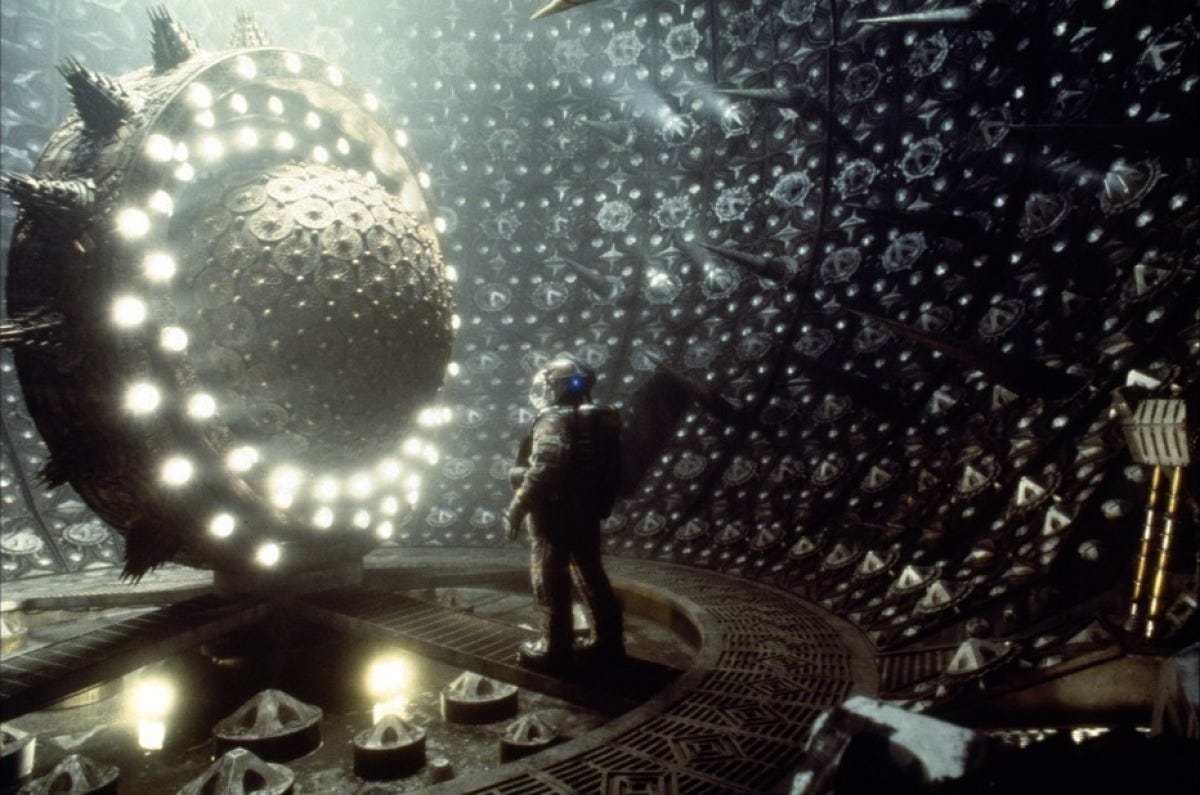



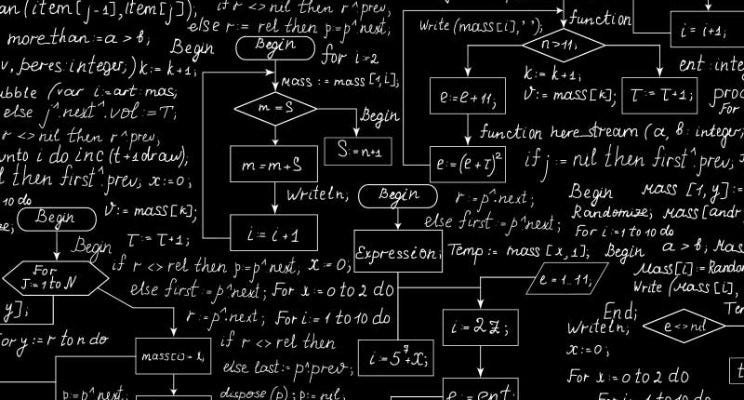
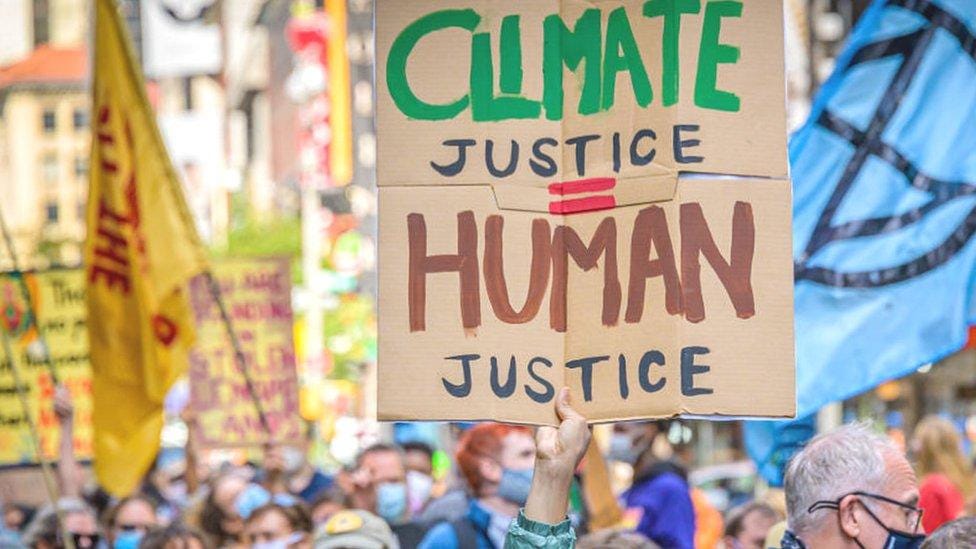


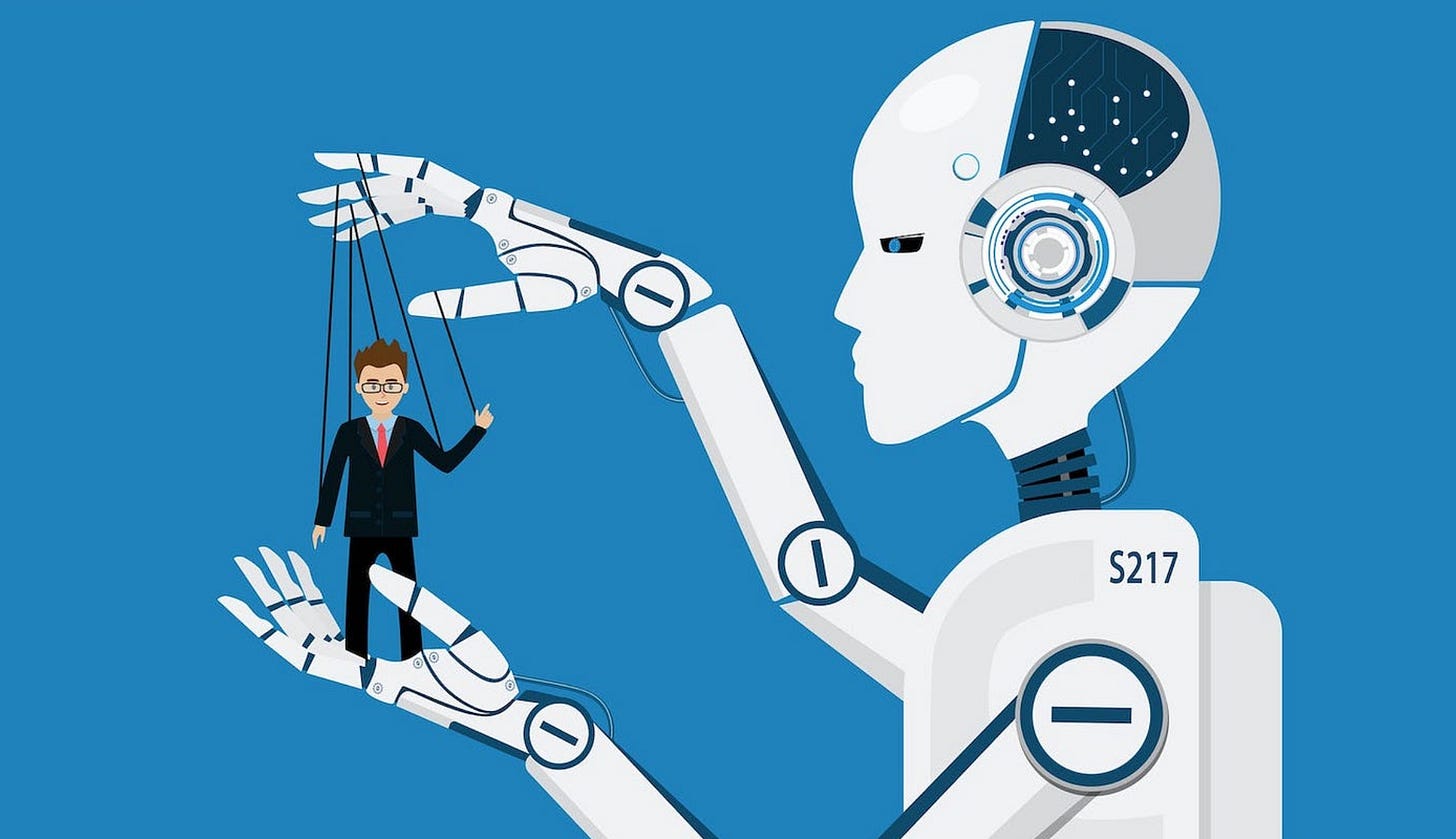






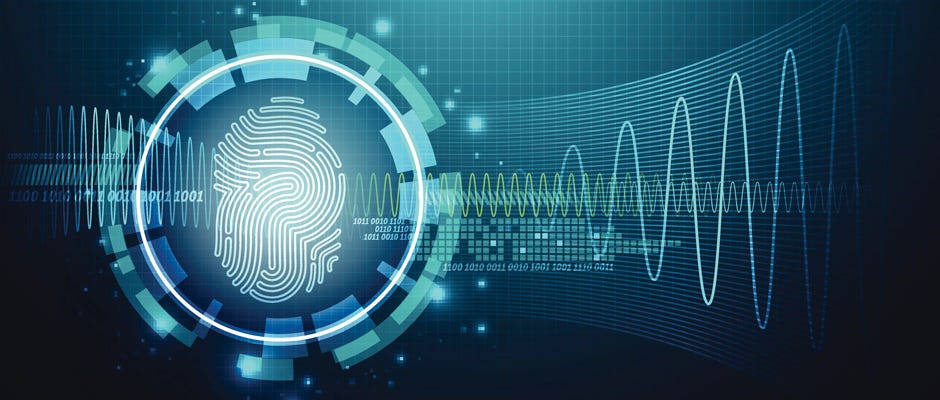


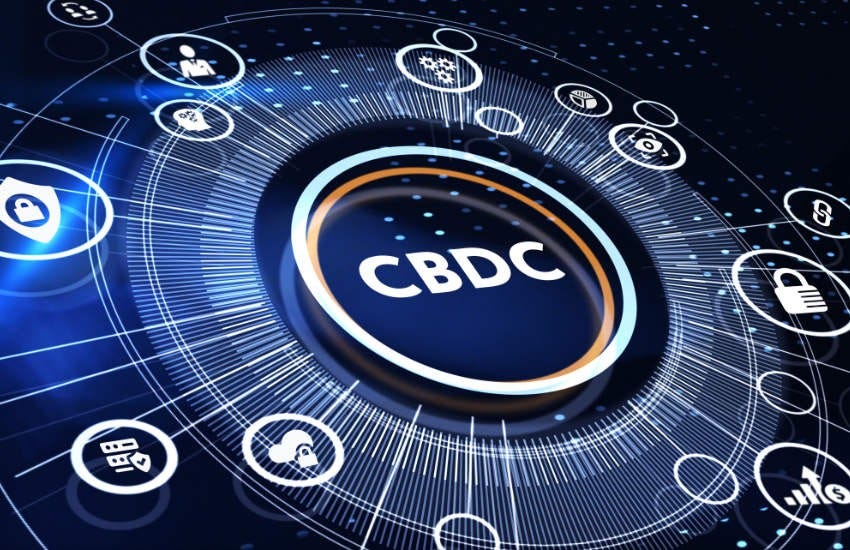


Sometimes I wonder if the whole setup of humanity is just to find out if we will ever join together in a world-wide 'White Hat Ride' to crush these freedom-smashing, murdering 'entities' once and for all. Riding together, joining minds and hearts en masse - aware at last of our 'Controller's' true nature and intent and therefore riding together to end their miserable wet dream of robotizing all of us into their obedient slaves - or killing us if we object. No amount of technical 'brilliance' can ever compare with the true freedom to become what Creation hoped we would Free Will ourselves to be. That is/was the obvious Intention- and this unfolding horror show of 'ethics' such as, "climate change", "sustainability", "esg", "dei", "equity", etc. - ad nauseam - is the transparent cover for a PTB grab for "full spectrum dominance" over all of us without end. There must come a stirring from deep within - and among us all - to boldly stand and reach for the sword of deepest Truth - a truth that naturally dwells in the hearts of all people of honor and good faith. A broad-based firm refusal to accept this odious 'Plan' and a relentless determination to put it to an end.
Would society accept its own demise, what possible advertisement could make even the lowest of humans give up free will. Yes, I know it happens every day and as the destruction of the middle class continues and the invasion of all western countries continues etc. they will use this misery to sell us a new form of slavery, AI & Technocracy under the guise of, it's good for you. It would be nice if the realizers could be left alone to exist as a separate society, but they can never leave well enough alone and would hunt us down. I, to be selfish, am happy I am older and got to at least understand and enjoy the bit of fake freedom I lived through. Just plain terrifying.